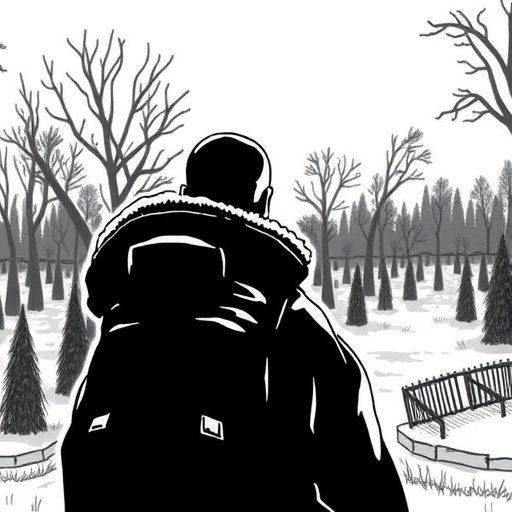The Covid-19 pandemic has presented an unprecedented challenge to global public health, not only in terms of physical illness but also regarding mental health consequences. A recent longitudinal study published in BMC Psychiatry sheds new light on how the pandemic and associated lockdown measures have affected individuals previously exposed to extreme trauma—specifically, survivors of the November 13, 2015 terrorist attacks in France. The study meticulously tracked changes in mental health indicators, assessing whether the pandemic exacerbated post-traumatic stress disorder (PTSD), anxiety, depression, and overall well-being in this vulnerable population.
France’s strict lockdown, imposed from March 17 to May 11, 2020, created an environment of isolation and uncertainty that could potentially trigger or worsen psychiatric symptoms. The research focused on 74 individuals exposed to the terrorist attacks, of whom 27 had a pre-existing diagnosis of PTSD, and 47 did not. To provide a comparative framework, the study also included a control group of 46 non-exposed individuals. Data were gathered via online questionnaires administered twice: during the lockdown and later in a post-lockdown period from early July to early August 2020.
Contrary to initial hypotheses, the study revealed no significant increase in PTSD symptomatology in any group during the pandemic. PTSD scores remained stable, indicating that prior traumatic exposure did not amplify PTSD symptoms in response to the global health crisis. This finding challenges the assumption that compounded traumatic stressors necessarily result in exacerbated post-traumatic pathology and underscores the potential resilience of this population.
In terms of depressive symptoms, similarly, no notable changes were observed across any of the cohorts. Depression scores appeared remarkably consistent despite the widespread psychological distress reported globally during the pandemic. This stability may suggest that while depression is a common consequence of trauma, its severity in this context was unaffected by additional pandemic-related stress.
However, anxiety presented a divergent pattern. Across all groups, anxiety levels increased significantly during both lockdown and post-lockdown periods, with the most pronounced elevations evident in individuals with PTSD. This nuanced outcome highlights anxiety as a particularly sensitive dimension of mental health under pandemic conditions, possibly reflecting the acute stress induced by fear of infection, social isolation, and disruptions to daily routines.
Further analysis explored the underlying mechanisms contributing to heightened anxiety among the PTSD-positive group during lockdown. The presence of Covid-19 symptoms in respondents, reported difficulties concentrating, and pervasive feelings of boredom emerged as key correlates exacerbating anxiety severity. These factors capture the multifaceted stressors—both somatic and psychological—that compound mental health challenges during crisis situations.
The study also provides critical insights into the role of coping strategies in modulating anxiety. Acceptance, conceptualized as an adaptive coping mechanism involving acknowledgment of the crisis without futile resistance, was associated with lowered anxiety levels. Conversely, maladaptive coping strategies such as self-blame and behavioral disengagement—where individuals withdraw or give up efforts to manage stress—were linked to heightened anxiety. These findings emphasize the importance of fostering constructive coping skills to buffer vulnerable populations against psychological deterioration.
Importantly, the research identified that these factors collectively explained approximately one-third of the variance in anxiety severity, signifying a substantive but not exhaustive model of contributors influencing mental health outcomes in this cohort. During the post-lockdown period, additional dimensions surfaced, including feelings of disappointment regarding anticipated career progression and the utilization of religious coping methods. The latter presents a complex picture, as religious engagement can function as both a source of solace and, paradoxically, additional stress depending on individual belief systems and contextual factors.
The stability of PTSD and depression juxtaposed against the marked increase in anxiety underscores the differentiated impact that the Covid-19 pandemic exerts on various domains of mental health among trauma-exposed individuals. This differentiation is critical for clinicians and policymakers seeking to allocate resources effectively and to design interventions tailored to specific psychological presentations during and after health crises.
A salient clinical implication of these findings is the clear signal that anxiety in people with prior PTSD warrants close monitoring, even years after the index traumatic event. The data suggest that anxiety, rather than flare-ups of PTSD symptoms, may be the most acute mental health risk in prolonged societal upheaval. Early identification and support for anxiety could prevent progression to more severe pathology.
Moreover, intervention strategies that promote acceptance and discourage maladaptive coping such as self-blame could prove invaluable in mitigating anxiety among trauma survivors during crises like pandemics. Integrating these strategies into mental health services, including telehealth formats that gained prominence during lockdowns, may enhance accessibility and efficacy of care.
The study’s methodology, employing repeated online assessments, allowed for timely and longitudinal capture of mental health dynamics in a hard-to-reach population. However, limitations include self-reporting biases and the relatively small sample size, which may affect generalizability. Future research could expand on these findings by incorporating biological markers of stress and larger, more diverse cohorts.
In conclusion, the intersection of pandemic-related stressors and pre-existing trauma histories generates a complex mental health landscape. While PTSD symptom severity remained unexpectedly stable among survivors of the 2015 terrorist attacks during the Covid-19 pandemic, anxiety substantially increased, especially in those with prior PTSD diagnoses. Coping mechanisms played a decisive role in influencing individual trajectories of anxiety, offering actionable pathways for intervention. These insights contribute vital understanding toward protecting mental health in populations with historic trauma exposure amidst ongoing global challenges.
Subject of Research: Mental health impact of the Covid-19 pandemic and lockdown on individuals previously exposed to terrorist attacks
Article Title: Impact of the Covid-19 pandemic and lockdown on the mental health of people exposed to the terrorist attacks of 13 November 2015
Article References:
Chakli, A., Lecouvey, G., Clochon, P. et al. Impact of the Covid-19 pandemic and lockdown on the mental health of people exposed to the terrorist attacks of 13 November 2015. BMC Psychiatry 25, 724 (2025). https://doi.org/10.1186/s12888-025-07134-2
Image Credits: AI Generated




